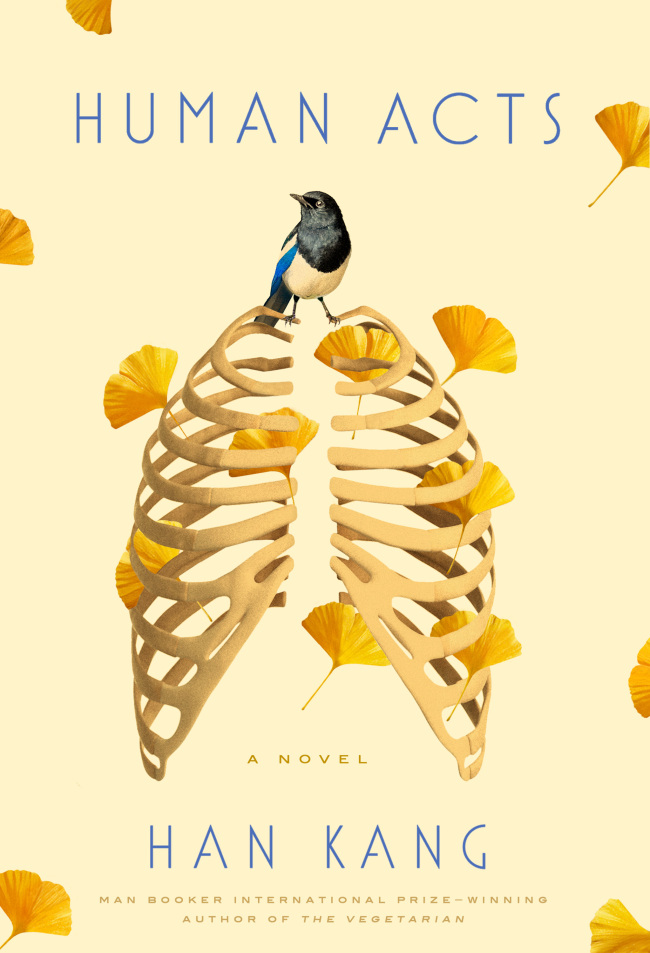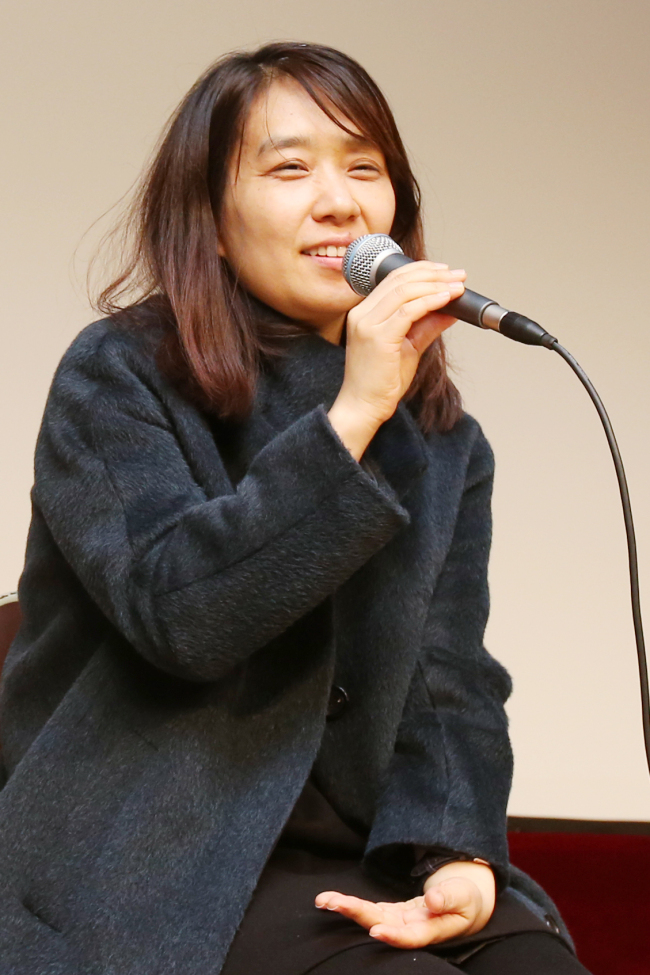Korean novelist evokes horrors of Gwangju massacre
By Korea HeraldPublished : Jan. 20, 2017 - 17:30
“Human Acts: A Novel” by Han Kang; Hogarth (224 pages, $22)
In May of 1980, the South Korean government turned its guns on its own people, murdering hundreds in the city of Gwangju who had been protesting a military coup and the continuation of martial law.
In “Human Acts,” Korean writer Han Kang -- winner of the Man Booker International Prize -- gives us their story, presented in this short novel through seven interwoven vignettes featuring characters who either died in Gwangju in 1980 or are now struggling to make sense of what it means to be alive in its aftermath.
In May of 1980, the South Korean government turned its guns on its own people, murdering hundreds in the city of Gwangju who had been protesting a military coup and the continuation of martial law.
In “Human Acts,” Korean writer Han Kang -- winner of the Man Booker International Prize -- gives us their story, presented in this short novel through seven interwoven vignettes featuring characters who either died in Gwangju in 1980 or are now struggling to make sense of what it means to be alive in its aftermath.

Han begins with the story of 15-year-old Dong-Ho, drawn into the fray as a volunteer identifying and watching over bodies of the unburied dead after Jeong-dae, his 15-year-old friend, is gunned down.
“Looking around at all those dead bodies crammed into the gym hall,” Dong-Ho imagines “a mass rally of corpses who were all there by prearrangement” and “whose only action was the production of that horrible putrid smell.”
Speaking from beyond the grave, Jeong-dae describes what it’s like to be in a “tower” of burning corpses who hadn’t even been this lucky, having been dragged away by the soldiers and now set ablaze:
“Water in the viscera hissed and boiled, until the organs dried and shriveled. Black smoke rolled off our rotten bodies in ragged, intermittent breaths, and in those places where there was nothing left to produce it the white gleam of bone was revealed ... ”
Bodies can be buried or burned, but the fallout from such events is endless.
Traveling to and reading about what happened in Gwangju in 2013, a character identified as “The Writer” is repeatedly awakened during the final vignette by nightmares resulting from her research. Closely resembling Han herself, the writer compares the massacre to “radioactive matter” that turns cells cancerous so that “life attacks itself”:
“Even if the victim dies, even if their body is cremated, leaving nothing but the charred remains of bone, that substance cannot be obliterated,” the writer tells us. “The radioactive spread is ongoing.”

We watch that toxicity at work during the intervening vignettes, set between the first two in 1980 and the concluding one in 2013; while each succeeding vignette takes us further from 1980 and toward the present, the memories and consequences involving Gwangju loom ever larger rather than fading.
Two women who’d watched over the corpses with Dong-ho, 18 and 20 at the time, look back, one from 1985 and the second from 2002. They sandwich the account of a first-year college student and protest organizer, who later endures such horrific torture that he himself can’t tell us his story; instead it’s delivered second-hand. We also hear from Dong-ho’s grieving mother, still whispering to her dead son’s picture every morning, 30 years later.
One of these characters now “had no faith in humanity.” A second commits suicide. A third, one of several whose torture is described in gruesome detail, wonders whether “human beings are fundamentally cruel.” A fourth, sexually brutalized, can’t bear to be touched.
Despite Deborah Smith’s poetically rendered translation, reading about human acts like these can be excruciating. But true to the urgency conveyed through its frequent use of second-person narration, Han’s book is also filled with human acts involving profiles in courage that inspire hope.
“It seemed we’d all performed the miracle of stepping outside the shell of our own selves, one person’s tender skin coming into grazed contact with another,” one character writes, remembering those heady days before soldiers marched back into town with tanks and guns.
In a novel whose heroes include editors, actors and writers, each battling to remember while censors try to forget, Han’s own book embodies the miracle this passage describes.
“Human Acts” is filled with talk of wandering and lost souls, struggling to connect; here, they’re allowed “grazed contact” with one another, painstakingly recreating a community that the government tried to destroy but which cannot be silenced.
By Mike Fischer
Milwaukee Journal Sentinel
(Tribune Content Agency)
-
Articles by Korea Herald

















![[KH Explains] Hyundai's full hybrid edge to pay off amid slow transition to pure EVs](http://res.heraldm.com/phpwas/restmb_idxmake.php?idx=652&simg=/content/image/2024/04/18/20240418050645_0.jpg&u=20240418181020)

![[Today’s K-pop] Zico drops snippet of collaboration with Jennie](http://res.heraldm.com/phpwas/restmb_idxmake.php?idx=642&simg=/content/image/2024/04/18/20240418050702_0.jpg&u=)